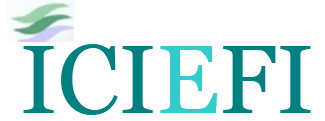SUBSCRIPTION TO A SPECIAL ISSUE
International Journal Islamic Economics and Finance (IJIEF)
What exactly is a Special Issue?
Special issues are publications that focus on specific issues within the International Journal of Islamic Economics and Finance's scope (IJIEF). It is up to the editor(s) to decide whether to accept or reject manuscripts that contribute to special issues.
Why would a special issue be published?
Special issues as a means of increasing the diversity of contributors and the output of high-quality content. Additionally, the special issue aims to increase the journal's citations without sacrificing its quality. Special issues may be issued at the discretion of the editorial board, provided the topic chosen is timely and relevant, but this does not preclude the acceptance of theme proposals from guest editors. The majority of specific problems are created when a subject expert identifies requests for problems in a particular field and contacts journal editors to express concerns.
Contributing Editors
Special issues may be handled by the editor(s) of the journal, but they are frequently handled by one or more guest editors. We educate them on the standards that IJIEF adheres to as a peer-reviewed journal, including the expectations for rigorous peer review and ethical behavior.
Submission of Papers
Papers for publication in the special issue may be chosen directly by guest editors from a pool of colleagues working in the field of research to be published. Additionally, papers may originate from a call for papers that requests submissions in advance. The invitation to submit is open to all, and the paper will be subjected to a peer review process, which includes the possibility of rejection.
Additionally, the author will be required to adhere to the author guidelines, provide the results of the similarity test, which should be less than 20%, adhere to publication ethics, adhere to the special issue's scope, and submit papers via online submission on the register page.
Observance of Time
In contrast to standard submissions, which are assigned to a regular issue only upon acceptance, special issues may be assigned to a fixed issue. This means that articles for special issues may be subject to strict deadlines. Special issues take longer to publish than regular issues. It is critical for the author to monitor special issue submissions.
All review processes and revision requests are communicated electronically through the website and email system. As a result, authors and guest editors must be aware of predefined deadlines. While it is possible to verify that working reviewers are experts in a predetermined topic, they also have the right to decline if they are unable to conduct a review for obvious reasons and will be asked to recommend a substitute reviewer who is in the same field as the specified topic and capable of conducting the review.
Addendums
Addendums or supplements are extra issues of the journal that may be published independently or in conjunction with a regular issue. Supplements are classified into three categories: abstracts, commercial, and non-commercial. While supplements will be available to journal subscribers, they may also have a much broader audience. While the sponsor may have a financial stake in the success of the supplement, supplements are not advertisements.
Supplements must be approved by the journal's editor-in-chief, and supplement articles must adhere to the same peer review, copyright, and ethical standards as regular articles. Addendums will be handled by the International Journal of Islamic Economics and Finance's publisher (IJIEF).
For certain addendums, articles will be reviewed independently by a guest editor and approved by the editor-in-chief, which means you may never be involved. Certain supplements employ the same peer-review process as standard articles. If this is the case, the editor should receive a complete list of the supplement's contents so they can decide which articles to accept. A supplement containing abstracts, for example, for a conference, will typically bypass the editorial office and go directly to the addendums team.












1.jpg)